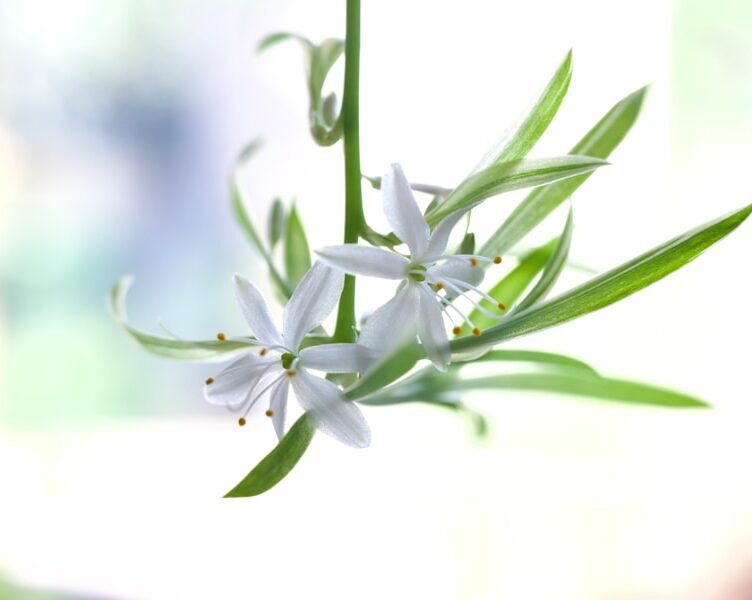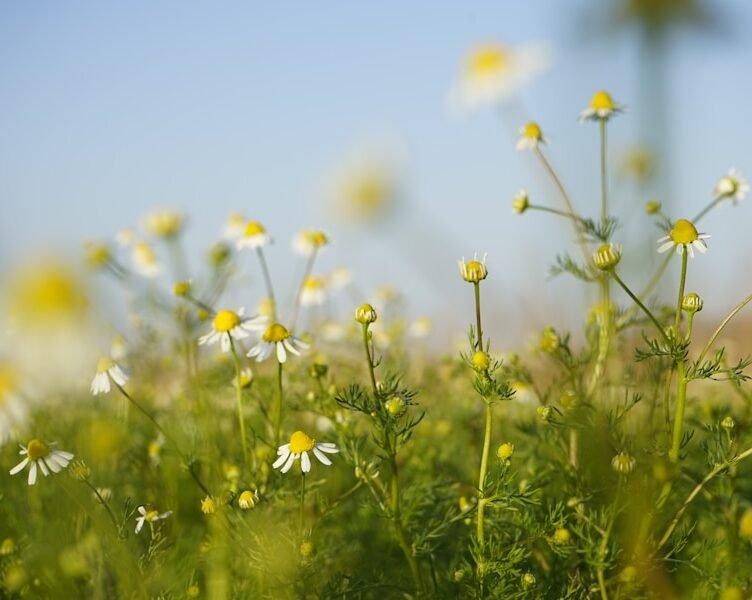Indoor medicinal plants provide a multitude of benefits for both physical and mental health. They offer natural remedies for common ailments, improve air quality, and create a calming atmosphere. Many of these plants have been utilized for centuries in traditional medicine and possess proven healing properties.
By integrating these plants into your home, you can tap into their therapeutic potential and enhance your overall well-being. In addition to their medicinal properties, indoor plants have been scientifically proven to improve air quality by removing toxins and releasing oxygen. This can help reduce the risk of respiratory problems and create a healthier living environment.
Moreover, caring for indoor plants can be a therapeutic and stress-relieving activity, promoting mental wellness. Overall, the benefits of indoor medicinal plants extend beyond their healing properties, making them a valuable addition to any home.
Key Takeaways
- Indoor medicinal plants provide natural remedies for common ailments and promote healing at home.
- Benefits of indoor medicinal plants include air purification, stress reduction, and easy access to natural remedies.
- Top medicinal plants for healing at home include aloe vera, lavender, peppermint, and chamomile.
- Proper care for indoor medicinal plants involves providing adequate sunlight, water, and regular maintenance.
- Creating a healing indoor garden and incorporating medicinal plants into home decor can enhance health and wellness.
Top Medicinal Plants for Healing at Home
Growing Medicinal Plants Indoors for Natural Remedies
Popular Medicinal Plants for Common Ailments
Aloe vera is a popular plant known for its soothing properties and ability to treat burns and skin irritations. Eucalyptus is another powerful medicinal plant that can be used to relieve congestion and respiratory issues.
Calming and Soothing Effects
Lavender is well-known for its calming effects and can be used to promote relaxation and improve sleep quality. Chamomile is often used to reduce stress and anxiety, providing a natural solution for a good night’s rest.
Natural Alternatives to Over-the-Counter Medications
Peppermint can help alleviate digestive issues, and these plants can be easily grown indoors, providing a natural alternative to over-the-counter medications. By having these medicinal plants on hand, you can effectively treat common ailments without the need for synthetic drugs.
How to Care for Indoor Medicinal Plants
Caring for indoor medicinal plants requires some attention and effort, but the rewards are well worth it. Proper watering, sunlight, and soil conditions are essential for the health and growth of these plants. Most indoor medicinal plants thrive in well-draining soil and require regular watering, but it’s important not to overwater them as this can lead to root rot.
Additionally, placing the plants in a location with adequate sunlight is crucial for their growth and medicinal properties. Regular pruning and fertilizing can also help maintain the health of indoor medicinal plants. It’s important to remove dead or yellowing leaves and flowers to encourage new growth.
Furthermore, using a natural fertilizer can provide the necessary nutrients for the plants to thrive. By following these care guidelines, you can ensure that your indoor medicinal plants remain healthy and continue to provide healing benefits.
Creating a Healing Indoor Garden
| Plant Name | Benefits | Best Location | Care Tips |
|---|---|---|---|
| Aloe Vera | Heals burns, moisturizes skin | Indirect sunlight | Water every 3 weeks |
| Lavender | Relieves stress, aids sleep | Direct sunlight | Prune after flowering |
| Mint | Relieves indigestion, freshens breath | Partial shade | Keep soil moist |
| Basil | Anti-inflammatory, boosts immunity | Full sunlight | Pinch off flower buds |
Creating a healing indoor garden with medicinal plants can be a rewarding and therapeutic experience. By selecting a variety of plants with different healing properties, you can create a diverse garden that offers a range of natural remedies. Consider incorporating plants such as aloe vera, eucalyptus, and lavender to cover a wide spectrum of health benefits.
Additionally, arranging the plants in an aesthetically pleasing manner can create a calming and inviting space. When creating a healing indoor garden, it’s important to consider the layout and design of the space. Choose containers and pots that complement the overall aesthetic of your home decor and consider adding decorative elements such as stones or crystals to enhance the healing atmosphere.
By creating a dedicated space for your indoor medicinal plants, you can fully immerse yourself in their healing energy and reap the benefits they have to offer.
Using Indoor Medicinal Plants for Common Ailments
Indoor medicinal plants can be used to treat a variety of common ailments without the need for synthetic medications. Aloe vera, for example, can be used to soothe sunburns, cuts, and insect bites due to its anti-inflammatory and antibacterial properties. Eucalyptus oil is commonly used to relieve congestion and coughs by inhaling its steam or using it in a diffuser.
Additionally, lavender oil can be applied topically or used in aromatherapy to reduce stress and promote relaxation. Peppermint is another versatile medicinal plant that can be used to alleviate digestive issues such as indigestion and nausea. Chamomile tea is often consumed to reduce anxiety and promote better sleep.
By having these medicinal plants readily available at home, you can effectively treat common ailments in a natural and holistic way.
Incorporating Medicinal Plants into Your Home Decor
Medicinal Plants for Specific Rooms
Consider placing aloe vera in the kitchen for easy access when treating burns or cuts, or keep eucalyptus in the bathroom to relieve congestion during cold and flu season. Lavender can be placed in the bedroom to promote relaxation and improve sleep quality, while peppermint can be grown in the kitchen for its digestive benefits.
Decorative Touches for Your Healing Garden
When incorporating medicinal plants into your home decor, consider using decorative pots and containers that complement your interior design style. This will not only enhance the aesthetic appeal of your living space but also create a cohesive look.
Creating a Calming Atmosphere
Additionally, consider creating a dedicated space for your healing indoor garden to fully immerse yourself in the calming and therapeutic atmosphere it provides. By seamlessly integrating medicinal plants into your home decor, you can enjoy their healing benefits while enhancing the overall aesthetic of your living space.
The Importance of Indoor Medicinal Plants for Health and Wellness
Indoor medicinal plants play a crucial role in promoting health and wellness by providing natural remedies for common ailments and improving air quality. The healing properties of these plants have been utilized for centuries in traditional medicine and continue to offer valuable benefits in modern times. By incorporating indoor medicinal plants into your home, you can harness their healing powers and create a nurturing environment that supports overall well-being.
Furthermore, caring for indoor medicinal plants can be a therapeutic activity that promotes mental wellness and reduces stress. The act of nurturing these plants provides a sense of purpose and connection to nature, which can have a positive impact on mental health. Additionally, the presence of indoor plants has been shown to improve mood and reduce anxiety, further contributing to overall health and wellness.
In conclusion, indoor medicinal plants offer a wide range of benefits for both physical and mental health. By incorporating these plants into your home decor, you can create a healing indoor garden that provides natural remedies for common ailments while improving air quality and promoting mental wellness. With proper care and attention, indoor medicinal plants can thrive and continue to offer their valuable healing properties for years to come.
Whether you’re looking to treat specific health issues or simply enhance the overall atmosphere of your home, indoor medicinal plants are a valuable addition that can greatly contribute to your health and well-being.
FAQs
What are indoor medicinal plants?
Indoor medicinal plants are plants that have healing properties and can be grown indoors for easy access to their medicinal benefits.
What are the benefits of growing indoor medicinal plants?
Growing indoor medicinal plants can provide easy access to natural remedies for common ailments, improve indoor air quality, and add greenery to indoor spaces.
What are some common indoor medicinal plants?
Some common indoor medicinal plants include aloe vera, lavender, peppermint, and chamomile, which have various healing properties such as soothing skin irritations, promoting relaxation, and aiding digestion.
How can indoor medicinal plants be used for healing?
Indoor medicinal plants can be used for healing through methods such as making herbal teas, creating homemade salves and ointments, and using the plants’ essential oils for aromatherapy.
What are some tips for growing indoor medicinal plants?
Tips for growing indoor medicinal plants include providing adequate sunlight, proper watering, using well-draining soil, and occasionally fertilizing the plants to promote healthy growth.





